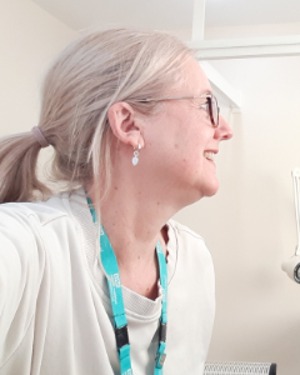
Understanding is the lifeblood of healthcare, forming connections between clinicians and patients on a profoundly human level. However, this understanding doesn't end at the bedside; it extends throughout the healthcare team. One particularly potent conduit for this understanding is the sharing of patient narratives. In this blog post, I will delve into the profound impact patient stories have on the teams providing care and explore how candid feedback, channelled directly to these teams, acts as a catalyst for positive change, shaping a culture steeped in understanding and compassion.
Patient and loved one’s narratives transcend the boundaries of illness and treatment; they offer glimpses into lives, emotions, and experiences. When these stories are shared within a healthcare team, they create a profound sense of understanding. Team members can step into the patient’s shoes, comprehending their fears, hopes, and challenges. This understanding fosters a compassionate environment, reinforcing the team's dedication to patient-centred care.
When teams are privy to patient narratives, they gain insights not found in clinical literature. They learn about the impact of their care beyond metrics. Understanding becomes a cornerstone in decision-making, with team members asking, "How would this affect our patients?" This shift in perspective humanises healthcare, enhancing the quality of care provided.
Direct and honest patient feedback, channelled to healthcare teams, serves as a powerful catalyst for change. Positive feedback validates the team's efforts, boosting morale and reinforcing empathetic practices. Constructive criticism, too, is invaluable. It highlights areas needing improvement, prompting teams to reflect, learn, and adapt. Embracing feedback is a hallmark of a mature and compassionate team.
A culture of understanding isn’t built overnight; it’s cultivated through sustained effort. Regular sharing of patient narratives, both positive and challenging, reinforces the importance of understanding. Leaders play a pivotal role by setting an example, showcasing understanding in their interactions and decision-making.
In the tapestry of healthcare, each patient narrative weaves a unique thread, connecting the team and patient in a bond of understanding. Candid feedback, emerging directly from these narratives, illuminates the path to a culture where understanding, compassion, and patient-centeredness thrive. As clinicians, embracing patient narratives and the feedback they bring is not just a professional duty; it’s a testament to the humanity that underpins healthcare, transforming it not merely into a practice but into a profound, empathetic art.
How Patient Narratives Enhance Understanding Within Healthcare Teams
How Patient Narratives Enhance Understanding Within Healthcare Teams https://patientopinion.blob.core.windows.net/profile-pictures/b009c23f-0602-4899-b151-015935100fd2.jpg Care Opinion 0114 281 6256 https://www.careopinion.org.uk /content/uk/logos/co-header-logo-2020-default.pngUpdate from Hampshire and Isle of Wight Healthcare NHS Foundation Trust
Posted by Abigail Barkham, Divisional Clinical Lead for Physical Health Mid and North Hampshire, Mid and North Hampshire, Southern Health NHS Foundation Trust, on
Thanks for your feedback.
Response from Craig Rees, Head of operations, Mid and North Division, Southern Health on 25 Oct 2023 at 15:45
Hi Abby
Enormously impressed by the blog, your fusion of social modelling with clinical care systems with driving improvements, based on the users of services and their loved ones feedback is extremely thought provoking and well thought through.
Thank you and please keep the blogs going
